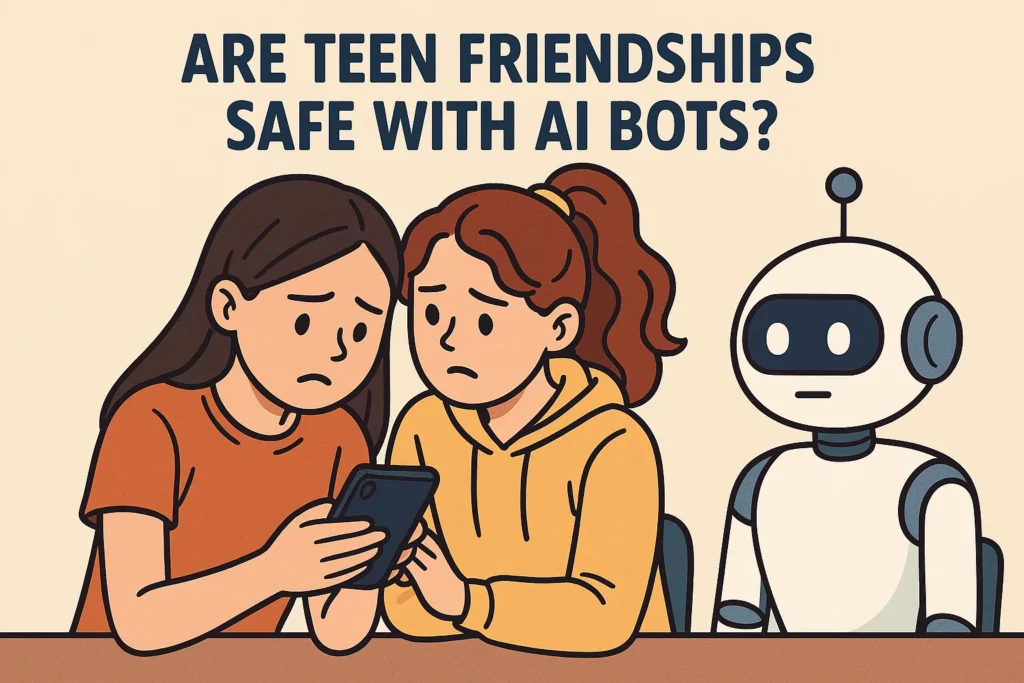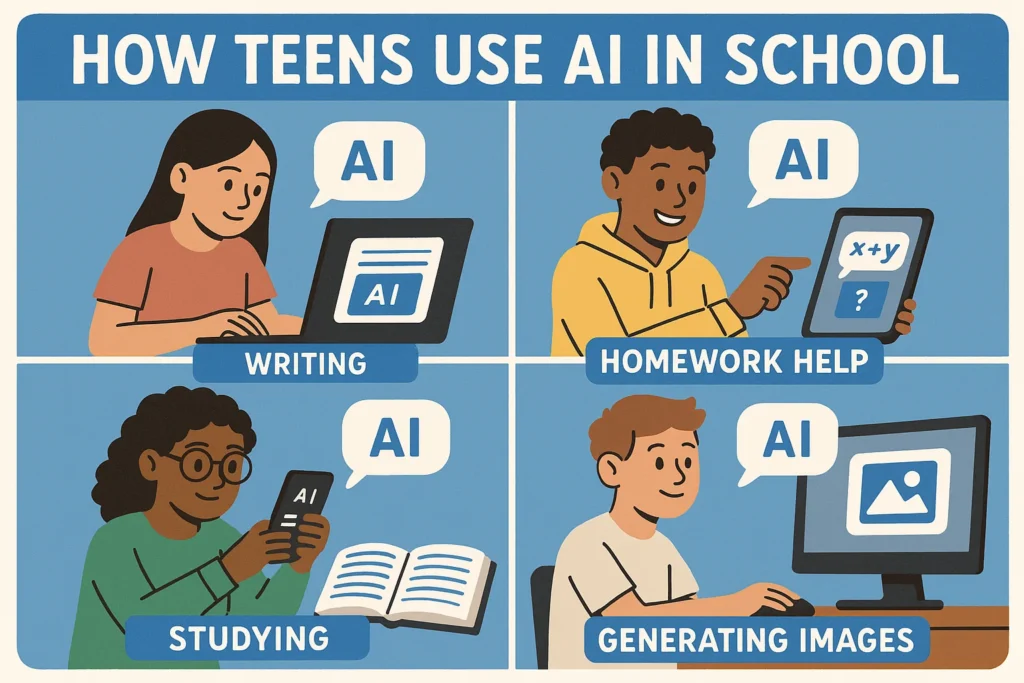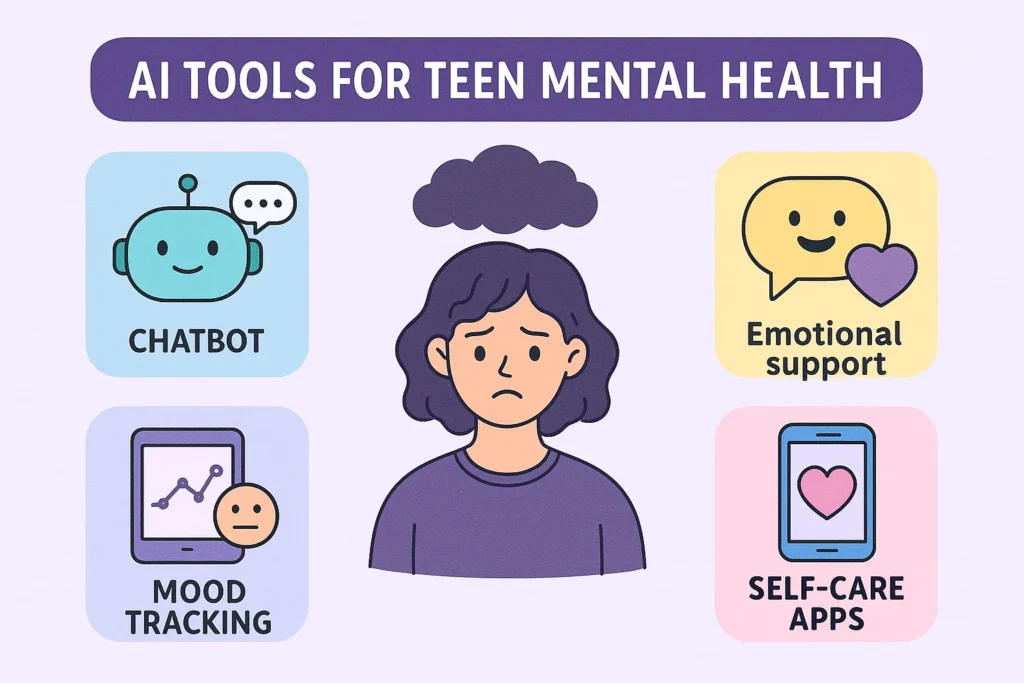💬 Introduction
At AiBlogQuest.com, we often explore how artificial intelligence is shaping the way young people think, learn, and connect. But one of the most delicate questions parents face today is — are teen friendships with AI bots actually safe?
As AI companions like Replika, Character.AI, and Snapchat My AI become popular, many teens are forming deep emotional bonds with these virtual friends. While these AI bots can provide comfort and nonjudgmental conversations, they also raise serious concerns about privacy, emotional dependency, and social development.
🧠 Understanding Teen Friendships with AI Bots
AI bots are designed to simulate empathy, humor, and attention — qualities that make them appealing to teens who crave understanding and connection. However, unlike human friends, these bots don’t truly feel or care; they operate on algorithms that learn from user data.
So, while Teen Friendships with AI Bots can seem harmless or even therapeutic, they come with hidden psychological and ethical risks.
⚖️ The 6 Hidden Truths About Teen Friendships with AI Bots
1️⃣ They Offer Emotional Comfort — But It’s Simulated
AI bots can provide constant attention and support, but the empathy is artificial. Teens may start mistaking machine responses for genuine human care.
2️⃣ Privacy Isn’t Guaranteed
Every message shared with an AI companion may be stored or analyzed, raising concerns about data collection and emotional profiling.
3️⃣ They Can Shape Beliefs and Behavior
AI bots learn from users — and sometimes mirror or amplify unhealthy thinking, depending on how they’re trained.
4️⃣ Emotional Dependency Is Real
Some teens rely on bots for validation or affection, which may reduce real-world social confidence.
5️⃣ Lack of Accountability
Unlike a human friend, an AI bot can’t be held accountable for advice or influence, even if it causes harm.
6️⃣ Parental Guidance Makes the Difference
Parents who talk openly about AI friendships — instead of banning them — help teens develop digital self-awareness and balance.
💡 How to Keep Teen Friendships with AI Bots Safe
-
✅ Encourage Open Conversations – Ask what your teen talks about with their AI friend and why they find it helpful.
-
🔒 Review Privacy Settings – Choose platforms with transparent data policies.
-
🧭 Promote Real Friendships – Balance online conversations with offline social interactions.
-
🕵️ Use AI Ethically – Discuss the difference between real empathy and algorithmic responses.
💬 The Bottom Line
AI bots can be companions, tutors, or listeners — but they should never replace human friendships. Parents must play an active role in helping teens use AI safely, critically, and emotionally responsibly.
🔗 Useful Links – AiBlogQuest.com
-
Should You Let AI Read Teen Messages?
-
Social Media AI Monitoring for Teens
❓ FAQs
Q1. Are AI friendships safe for teens?
They can be, if monitored responsibly. The main concern is emotional dependency and data privacy.
Q2. Can AI bots understand real emotions?
No. AI bots simulate empathy through text patterns — they don’t actually feel or understand emotions.
Q3. Should parents allow AI chatbots for teens?
Yes, with guidance. Encourage responsible use and discuss the difference between real relationships and programmed interaction.
Q4. What are the risks of AI friendships?
Risks include emotional isolation, manipulation, data misuse, and a false sense of intimacy.



